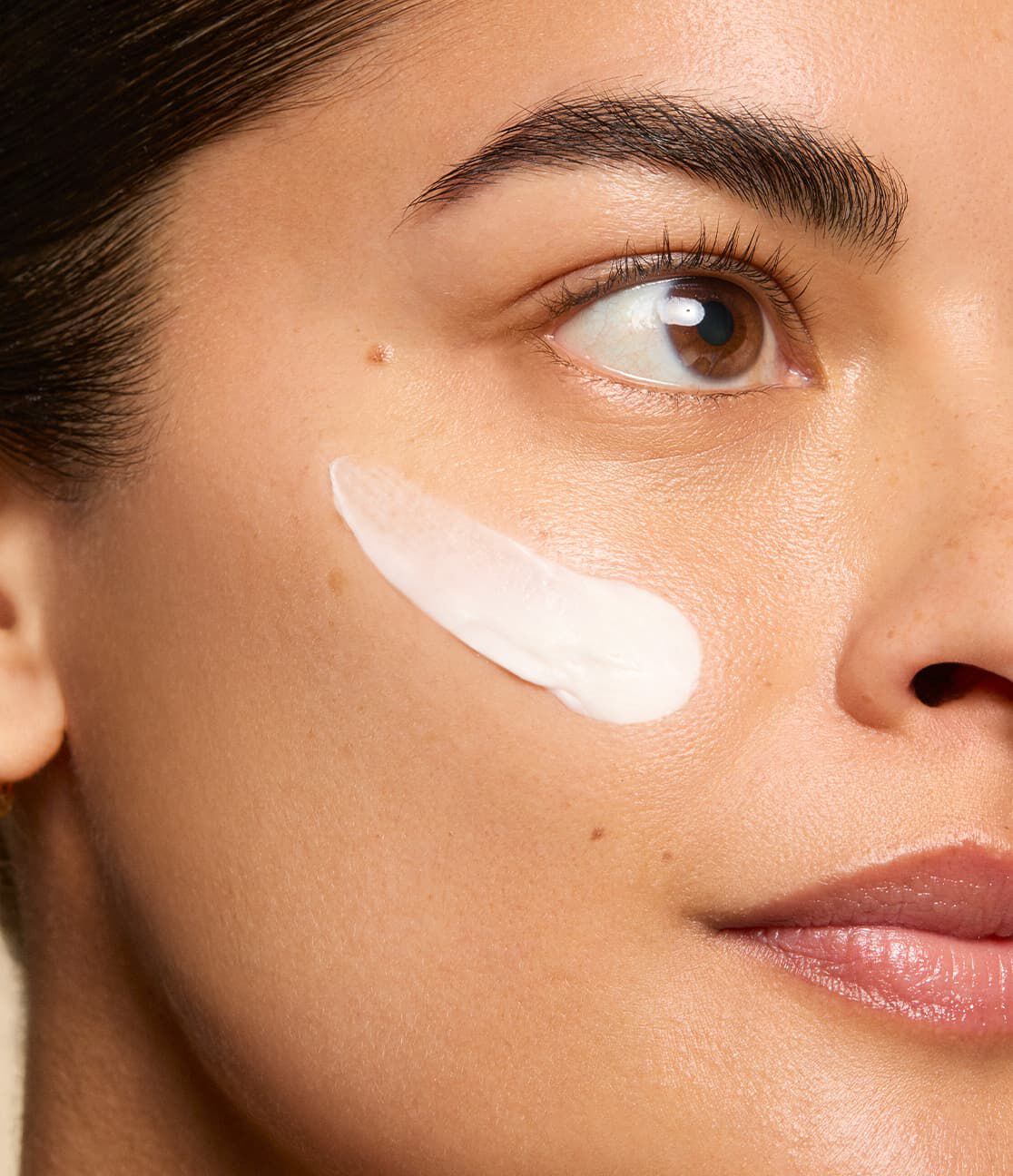There’s a misconception floating around that only people who experience symptoms of dry skin need to worry about hydrated skin. In fact, regardless of skin type, adequate skin hydration should be of paramount importance to every skincare routine. Even those with ‘oily’ skin can still suffer from dehydrated skin. Oil does not equal water content! For a closer look into achieving glowing skin, we’ll dive into proper hydration tips and some of the benefits of moisturizing your face and body!
What is Hydration?
In short, your skin’s hydration is your body’s water content. In relation to your skin, it’s how much water your skin is holding at any given moment. There are many things that can affect your skin’s water content. When skin hydration is poor, your skin becomes parched. You may notice it looks dull and it might even feel tight and irritated.
Over the long haul, with prolonged dehydrated skin, your skin can age faster and begin to look haggard and saggy. Not to mention the vital role that adequate hydration plays in keeping your skin’s barrier functioning well and doing its job.
Tips for Hydrating Your Skin
Drink Water!
One of the number one ways to combat dehydration system-wide is to drink enough water throughout the day. Water impacts many things in your body, including the health of your skin. More than just water though, you need to make sure you’re drinking in a balanced way. Consuming too much water all at once could lead to electrolyte imbalances, so it's always better to drink water slowly but consistently throughout the day, especially when outdoors.
Reconsider Your Diet
If you’re regularly consuming processed, unhealthy foods, it could be affecting your skin. Try to focus on eating a balanced diet with nutrient dense foods, and up your intake of fruits and veggies with a high water content. Watermelon and other melon fruits are excellent choices, as are citrus fruits. Foods high in amino acids are also necessary. They are protein building blocks needed for healthy skin, and you can find them in foods like dairy, eggs, meats, fish, beans, walnuts, and olive oil.
Skip the Hot Showers
Unfortunately, though hot showers feel amazing, you can lose much needed protections when it strips your skin of its natural oils and lipids. Your skin needs those lipids and oils to properly defend itself and keep the skin barrier strong and functioning the way it should. Hot water also evaporates quicker than cool water, so if you use a moisturizer after you shower, it reduces the time you have to apply it.
Get a Humidifier
These are great little tools to use year-round for healthy skin, but they are especially helpful during colder months when the air around you tends to be drier. A good humidifier helps shoot water back into dry air and can be a lifesaver if you suffer from dry, itchy, chapped skin and lips.
Look for Hydrating Skincare Ingredients
Not all skincare products are created equal. It’s a great idea to look for products with hydrating ingredients if you struggle to keep your skin looking and feeling moisturized and youthful. Water-based creams are an excellent option, along with powerhouse hydration ingredients like vitamin c, hyaluronic acid, ceramides, panthenol, urea, and glycerin.
Apply Active Ingredients at Night
Wondering when to use moisturizer? Weirdly, your skin can lose water at night by evaporating into the air, because it’s more permeable during the night. However, that’s not necessarily a bad thing, because it also means you can layer on the moisturizers with nourishing ingredients like fatty acids and antioxidants, and they will permeate easier to do their jobs. So even though you might go to bed feeling a tad dehydrated, you can awaken with skin that feels plump and hydrated!
Apply Hydrating Skincare Products When You’re Damp
When you emerge from the bath or shower, don’t rub or scrub yourself dry. When it comes to how to apply moisturizer, don’t take the short cuts. Instead pat yourself dry so that your skin is left with some moisture on top. Then apply your hydrating moisturizer so that they can trap your skin’s moisture and lock it in where it’s the most useful. This is particularly useful when you use humectants that attract and pull water into your skin from the air around you. So not only are you trapping moisture left behind, you’re also pulling additional moisture in!
Know the Difference Between Moisturizers and Hydrators
Skincare terms like moisturization and and hydration are often used interchangeably, but when it comes to skincare products, they are not quite the same. So, what is moisturizer? Moisturizers are used to help reinforce your skin’s barrier and seal moisture in. A hydrator is designed to pull water from the air around you and lock it into your skin cells. Both serve their purpose in keeping your skin looking and feeling soft, plump, and supple.
Hydrating your skin isn’t complicated, it just requires consistency and commitment. Eat well, drink plenty, use nourishing skincare products, and engage in a daily skincare. The results will speak for themselves! For more skincare information, check out the Honest Company for helpful tips and tricks including does moisturizer expire? We’re here to get your regime back on track!
Sources:
https://www.hlbenefits.com/11-ways-naturally-hydrate-skin/
https://www.mindbodygreen.com/articles/how-to-hydrate-skin
https://www.mayoclinic.org/healthy-lifestyle/adult-health/expert-answers/hydrated-skin/faq-20058067
https://bebodywise.com/blog/skin-hydration/
https://skinkraft.com/blogs/articles/how-to-hydrate-your-skin
We aim to provide you with the most honest and credible information possible. This article was reviewed for accuracy by The Honest Team and was written based on sources that are linked at the bottom of the article.
blog_review_statement



